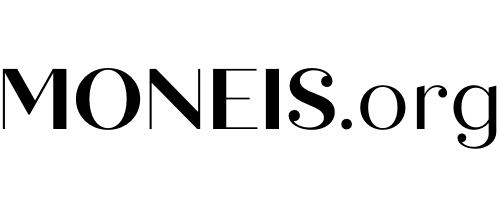Saving money during a recession is crucial for financial stability. This article guides you through practical strategies to strengthen your economic resilience.
You'll learn practical ways to assess, manage, and protect your finances. It's tailored to help you navigate through challenging economic times with confidence.
Understanding Recession
A recession is a significant decline in economic activity lasting over a few months. It's typically visible in real GDP, income, employment, industrial production, and wholesale retail sales.
Recessions occur when there is a widespread drop in spending, often triggered by financial crises, external trade shocks, or excessive debt. During a recession, businesses slow down production due to decreased consumer demand.
Unemployment rates rise, and the economy enters a period of contraction. This phase is part of the business cycle and is usually followed by a recovery period.
Saving During Downturns
Saving money in economic downturns is vital for financial security. Recessions can lead to job loss, reduced income, and increased uncertainty. Savings act as a safety net, providing financial cushioning during these challenging times.
Building and maintaining a savings fund can help you manage unforeseen expenses without falling into debt. Cultivating a habit of saving, especially during economic prosperity, prepares you for financial challenges during recessions.
Understanding Your Finances
Understanding your finances is the first step towards effective money management. It involves a clear assessment of your income streams and regular expenses.
Income and Expense Tracking
Tracking your income and expenses is essential in understanding your financial health. List all sources of income, including salaries, investments, and any side hustles.
For expenses, categorize them into essentials like rent, utilities, and food and non-essentials like entertainment. Regularly update this record to reflect any changes.
This habit helps in identifying spending patterns and areas for cost-cutting. Use tools like budgeting apps or spreadsheets for better tracking. This process is critical in developing a strategy to save money, especially during economic downturns.
Recession-Proof Budgeting
Creating a recession-proof budget involves adapting your spending to align with reduced income during downturns. Prioritize essential expenses such as housing, utilities, and groceries.
Allocate a portion of your income to emergency savings. Reduce discretionary spending on dining out, subscriptions, or luxury items.
Regularly review and adjust your budget as your financial situation changes. This proactive approach ensures you stay financially afloat and save during challenging times.
Reducing Expenses
Reducing expenses is critical to maintaining financial stability during a recession. It involves identifying areas to cut back without compromising essential needs.
Cutting Non-Essential Spending
Identifying non-essential spending requires analyzing your expenses critically. Look for patterns in your spending habits that are optional for survival or essential comfort.
Common non-essential expenses include eating out, luxury purchases, and expensive hobbies. Assess subscriptions and memberships; cancel those not in regular use.
Switch to more affordable entertainment options like free online content. Consider carpooling or using public transport to save on travel costs. Reducing these expenses increases your ability to save, especially during economic downturns.
Cost-Cutting Tips
To effectively manage finances, adopting practical cost-cutting measures is essential. Here are actionable tips:
- Shop during sales and use discount coupons.
- Cancel unused subscriptions and memberships.
- Opt for public transportation instead of personal vehicles.
- Cook at home more often instead of dining out.
- Use energy-efficient appliances to reduce utility bills.
- Consider second-hand items for significant savings.
Smart Shopping
Smart shopping involves making purchasing decisions that maximize value and minimize costs. It's about spending wisely, not necessarily spending less.
Seeking Deals and Comparisons
Comparison shopping means evaluating prices and quality across different retailers before purchasing. Research prices online and in-store to find the best deals.
Look for discounts, sales, or clearance items. Consider buying off-season items for lower prices. Use price comparison apps and websites.
Remember, the cheapest option is sometimes the best; consider quality and longevity. This approach helps in maintaining a healthy financial status, especially during recessions.
Bulk Buying and Generic Choices
Buying in bulk and choosing generic brands can lead to significant savings. Bulk purchases are often cheaper per unit and are practical for non-perishable items.
Generic brands offer similar quality at lower prices compared to name brands. Be mindful of storage space and expiration dates when buying in bulk. This strategy is especially effective in managing household budgets during economic downturns.
Increasing Savings
Increasing your savings is crucial, especially in preparation for or during a recession. It requires discipline and a strategic approach to your finances.
Setting Saving Goals
Setting realistic saving goals is essential for financial planning. Determine a specific amount or percentage of your income to save monthly.
Make these savings goals achievable and based on your income and expenses. Consider short-term goals like an emergency fund and long-term goals like retirement savings.
Regularly review and adjust these goals as your financial situation changes. Achieving these goals provides security, particularly in uncertain economic times.
Consistent Saving Practices
Consistent saving requires discipline and a structured approach. Automate your savings by setting up direct transfers to your savings account. Treat savings as a non-negotiable expense in your budget.
Avoid dipping into your savings for non-emergency expenses. Review and adjust your savings plan periodically to align with your financial goals. Remain committed to this practice, which is crucial for building a financial cushion, especially during recessions.
Protecting Your Savings
In times of economic downturn, safeguarding your savings becomes crucial. Here's how to protect your funds during a recession.
Recession Impact on Savings
Recessions can significantly affect your savings. Economic downturns often lead to reduced interest rates, affecting savings growth.
Additionally, the need for liquid cash during tough times might force you to dip into your savings. Understanding these impacts is essential to prepare better and protect your savings.
Safeguarding Savings Strategies
To safeguard your savings, diversify your investments to reduce risk. Consider stable options like high-yield savings accounts or short-term government bonds.
Avoid making hasty decisions based on market panic. Regularly review your savings plan to adapt to changing economic conditions, ensuring financial security even during downturns.
Alternative Income Sources
Exploring alternative income sources can provide financial stability during recessions. It's about creating income streams beyond your primary job.
Side Jobs and Passive Income
Side jobs can supplement your income, especially during economic slowdowns. Look for freelance opportunities, part-time work, or gig economy roles that align with your skills.
Consider passive income sources like rental income or dividends from investments. These additional income streams help maintain your lifestyle and savings during challenging economic periods.
Upskilling for Opportunities
Upskilling opens doors to new opportunities, making you more marketable and financially secure. Take advantage of online courses and workshops to learn or improve existing skills.
Focus on areas with high demand in the job market. Upskilling increases your chances of better employment and equips you to start a side business or consultancy, further diversifying your income sources.
The Bottom Line: Navigating Financial Stability in Tough Times
In conclusion, saving money during a recession involves strategic planning and adaptive measures. You can build a resilient economic foundation by understanding your finances, reducing expenses, and exploring alternative income sources.
It's essential to regularly assess and adjust your strategies to align with the evolving economic landscape. Remember, effective economizing during a recession safeguards your current financial status and paves the way for future financial growth and stability.




